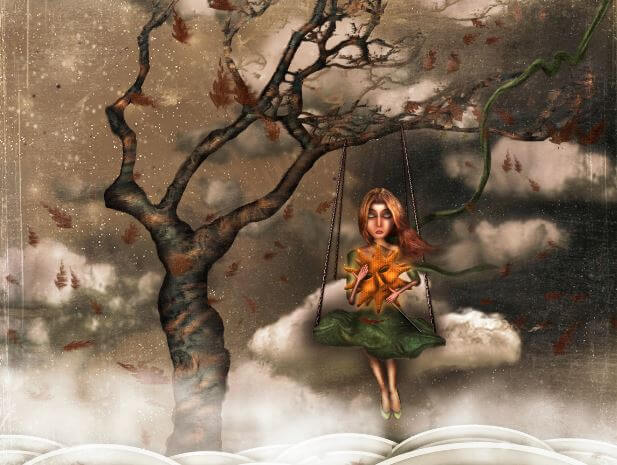Childhood problems define what our quality of life will be when we are adults and can also have a significant impact on how our children today will face adversity tomorrow.
Thus, one way or another, from these five emotional wounds, or painful experiences of our childhood, we will understand a part of our personality. Now let’s see how our child emotional wounds can be defined, according to Lisa Bourbeau.
- Loneliness is the worst enemy of those who experienced some kind of abandonment in their childhood.
- There will be constant vigilance about this problem.
- Which will lead the person who has suffered her to abandon their partners and projects before.
- So as not to abandon it.
- It would be something like.
- “I’m leaving before you leave me?” nobody supports me.
- Don’t I want to hold on?”If you leave.
- Don’t come back.
- “.
People who have had experiences of neglect in childhood will have to work on their loneliness, their fear of rejection, and the invisible barriers of physical contact.
The emotional wounds of childhood present in our personality and caused by abandonment are not easy to heal, so you have to be attentive to when they start to hurt and try to heal them, when they are afraid and moments of loneliness, that will begin to disappear. with the flow of more positive and encouraging internal dialogues.
It is a deep wound, because it implies the rejection of our interior, so our interior we mean our experiences, our thoughts and our feelings.
There are many factors that can influence your presence, such as the rejection of parents, family members, or co-workers, all of which generate thoughts of rejection, of not being loved, and of having no value.
The person who goes through this painful experience does not feel worthy of affection or understanding, he isolates himself in his inner void for fear of being rejected, if you lived the rejection in your childhood, the possibility of being a closed person today is enormous. He needs to work on his fears, internal fears and panic-causing situations.
If this is your case, take care, risk and make decisions for yourself, so that you worry less and less and do not personally take something that, at some point, can cause you discomfort.
This injury comes at a time when we feel others disapprove and criticize us. We can cause these problems to our children by telling them they are stupid, stupid, boring or something; this eventually destroys a child’s self-esteem.
The kind of personality that humiliation often generates is a dependent personality. In addition, we learn to be “pulls” and selfish, as a defense mechanism, and even to humiliate others as a shield.
Having gone through these kinds of experiences leads us to have to work our independence, our freedom, the understanding of our needs and fears, as well as our priorities.
In this case, the child may have been betrayed, at some point, by a parent who did not keep certain promises, which creates a mistrust that can become envy and other negative feelings, which make the person not feel worthy of the promises he has made to him. others do it.
Anyone who has suffered these problems in childhood becomes a controlling person, and who wants everything to be tied up and under control, if you suffered these problems in childhood, you tend to feel the need to exercise some control over others, which is often justified by a strong personality.
These people often justify their mistakes in various ways: change requires patience, tolerance, and self-knowledge to live and learn to be alone and delegate responsibilities.
This is derived from an environment in which the main caregivers are cold and authoritarian; in childhood, an exaggerated demand can create a sense of helplessness and futility for both children and adults.
The direct consequence on the behavior of those who suffer from this rigidity is the development of a personality that seeks to be very important and that wants to acquire great power. In addition, fanaticism for order and perfectionism is likely to develop, as well as the inability to make decisions with confidence.
In this case, you have to work on confidence and mental rigidity, generate maximum flexibility and allow yourself to trust others.
You already know the five emotional wounds of childhood that can affect our well-being, our health and our ability to develop as human beings. Knowledge is the first step in starting to heal our wounds.
Images courtesy of natalia_maroz and jrcasas
Source of idea: Bourbeau, L. (2003). The five wounds that keep you from being yourself. OB Stare.

